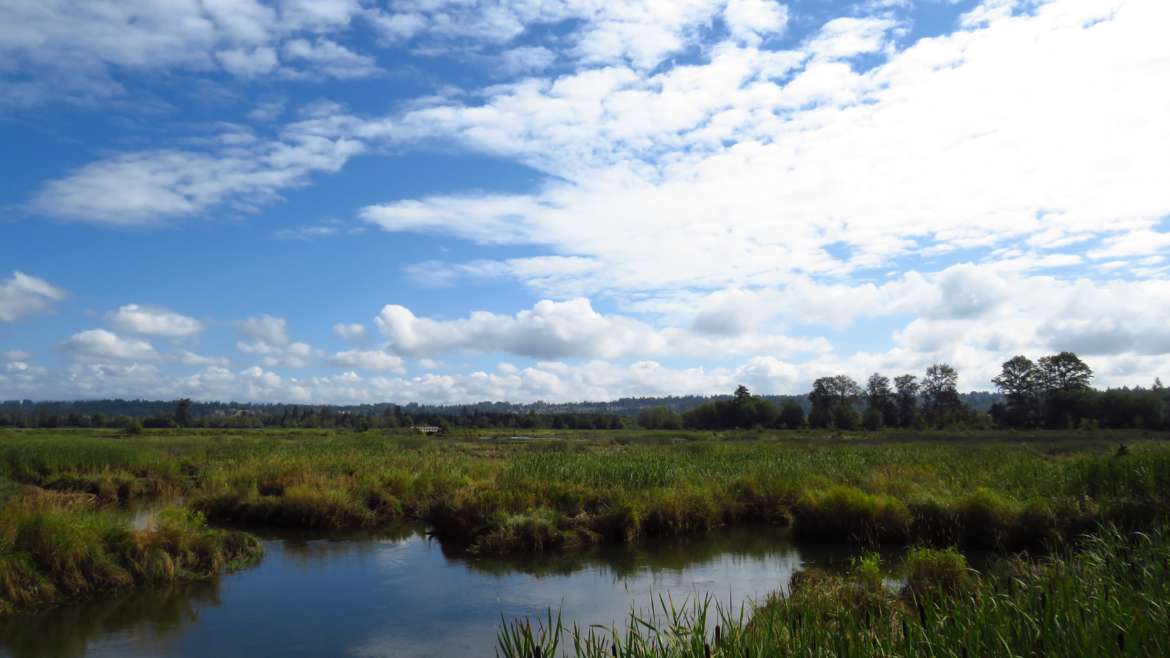
In Rhode Island, the Department of Environmental Management oversees the Freshwater Wetlands Program, which aims to protect the state’s freshwater wetlands from overdevelopment, and maintain existing habitat as well as the natural benefits that wetlands provide. In Massachusetts, the Department of Environmental Protection (DEP) oversees a similar program, which we will highlight in today’s blog post.
The Massachusetts Freshwater Wetlands Act
Massachusetts adopted the first wetlands protection law in the U.S., the Massachusetts Wetlands Protection Act, in the early 1960’s. As is the case with Rhode Island, the state’s freshwater wetlands are now protected by state and federal laws (such as the Clean Water Act). This state law requires anyone seeking to conduct activities which may alter a wetland to obtain a municipal permit, also called an Order of Conditions, from their local conservation commission. The DEP works with the conservation commissions. It has developed regulations for carrying out the law, while the conservation commissions approve or deny applications based on their own by-laws (which are frequently stricter than the state requirements but cannot be less restrictive). The DEP also hears appeals from the conservation commissions’ decisions. This is different from the process in Rhode Island, which DEM is wholly in charge of.
The different bodies of water that make up wetlands systems are treated differently under the law. Inland wetlands are divided in the regulations into: banks (naturally occurring banks and beaches), bordering vegetated wetlands (wet meadows, marshes, swamps, and bogs), land under water bodies and waterways (under any creek, river, stream, pond, or lake), land subject to flooding (bordering and isolated areas), and riverfront area. Protected areas generally include an extended buffer zone around wetlands as well.
The Municipal Permit Processes
There are two different submissions a person can make with regard to permitting activities in wetland areas. First, a Request for a Determination of Applicability allows one to determine whether the proposed activity requires an Order of Conditions from the conservation commission in their municipality, and also serves as a means to confirm a wetlands delineation. This process requires a public hearing, after which the conservation commission issues a Determination of Applicability. If the commission determines that the proposed activity does not affect wetlands, work can begin after the ten-day appeal period ends. If the commission determines the work will affect a wetland, the applicant must then apply for a municipal permit.
A Notice of Intent is filed with the conservation commission as an application for this municipal permit. This permit is required before any work can begin and requires another public hearing. Abutters must be notified of the project and the public hearing date. The most important aspects of the public hearing are the “statutory interests” in protecting wetlands (the law lists eight wetlands values to take into consideration), and the mitigation the applicant plans for lessening the impacts to affected wetlands. The commission then approves the project and issues an Order of Conditions for the work or denies the project and lists its reason(s) for doing so.
An environmental law attorney can work with you and your local conservation commission to determine the limits of wetlands on your property and whether your proposed activity requires a municipal permit. An attorney can then help you move through the process quickly by providing the appropriate amount of information to the conservation commission and keeping track of deadlines and appeals for you. Desautel Browning Law’s environmental attorneys work on wetlands permitting cases in RI and MA frequently. Fines and sanctions for unpermitted work can be costly.
For assistance with your projects in wetlands areas, contact us to schedule a consultation today. We have decades of experience assisting clients with these processes in Massachusetts.
Reach out by phone at 401.477.0023 and email at help@desautelbrowning.com today!
